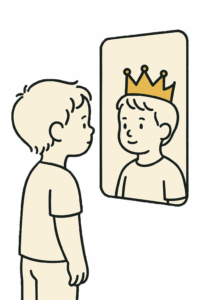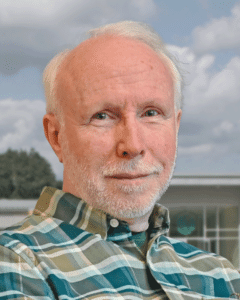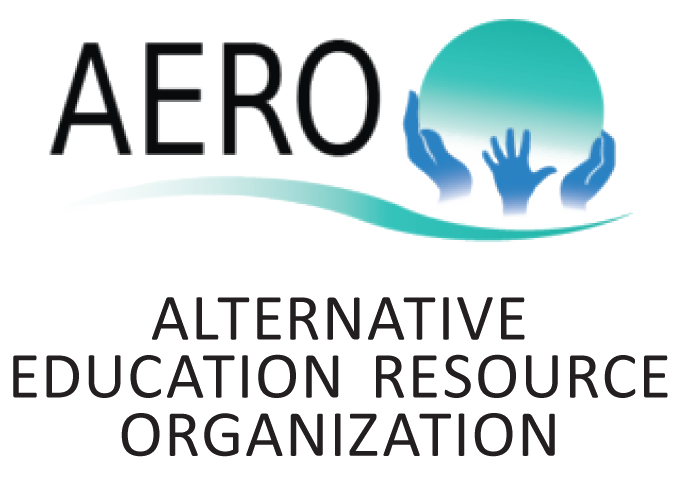 Left and right don’t agree on much, but on narcissism it’s unanimous: bad for kids, schools, and politics. Commentators of all stripes say society is more self-obsessed and entitled than ever. People care too much about status and getting attention. Social media makes it worse by encouraging self-promotion and image over substance.
Left and right don’t agree on much, but on narcissism it’s unanimous: bad for kids, schools, and politics. Commentators of all stripes say society is more self-obsessed and entitled than ever. People care too much about status and getting attention. Social media makes it worse by encouraging self-promotion and image over substance.
Narcissism isn’t just about vanity or selfishness. It’s what happens when a person’s sense of self gets stuck at an early, immature stage of development. And it’s not just an individual problem. Narcissism affects our schools, our communities, and our national politics.
Healthy development follows a kind of natural pattern:
-
- Infancy: Babies start by knowing themselves mainly through their bodies—their needs, their comfort, their feelings.
- Early Childhood: Little kids are famously self-centered—that’s normal narcissism—but ideally they start learning how to get along with others.
- Adolescence: Teens form and grow into a self-image, balancing their individuality with belonging to groups like family, friends, and school.
- Adulthood: Grown-ups ideally expand their world further—connecting with communities, causes, and purposes beyond themselves.
- Self-Transcendence: Some people go even farther, feeling part of all humanity, nature, or something even larger.
As a line of psychological development, Integral Theory (part of The Circle School’s foundation) identifies four stages: Egocentric (self-focused), Ethnocentric (family, tribe, nation), Worldcentric (all of humanity), and Cosmocentric (all life, the universe). Growth of the self along this line is crucial for personal fulfillment and satisfying engagement in society.
At every step, the self can grow wider and deeper. But sometimes it doesn’t. If growth gets stuck early—say, around the “me first” or “it’s all about my people” stages—narcissism can take root.
When things go wrong, healthy development may be derailed and narcissism may persist into adulthood as “Narcissistic Personality Disorder”, which can show up as:
-
- Grandiosity, an exaggerated sense of self-importance
- Preoccupation with fantasies of unlimited power, success, or brilliance
- A need for excessive admiration
- Expectations of special treatment or compliance with their demands
- Interpersonal exploitation
- Arrogance, lack of empathy
Narcissism and politics are a bad match. Narcissistic traits can actually help someone succeed in politics—traits like craving attention, wanting to dominate, and needing constant admiration. That’s a big part of the problem. Narcissists often win in politics because…
-
- They’re great at getting attention, even if it’s by stirring up controversy.
- They create “us vs. them” stories that rally people behind them.
- They project confidence and strength, even when their ideas are shallow.

But narcissists hurt society because…
-
- They prioritize personal power over public good.
- They divide people into camps and make compromise almost impossible.
- They weaken essential institutions like courts and elections.
When leaders are more interested in fame or loyalty than in serving the common good, everybody loses.
Schools can help or hurt, playing a big role in shaping young people. Depending on their approach, schools can help kids grow into mature, competent adults—or unintentionally nudge them toward narcissism by emphasizing…
-
- Grades over growth: If kids tie their worth to test scores, rankings, and popularity, they chase approval instead of excellence, depth, and intrinsic value.
- Excessive competition: Striving for excellence is healthy, but constant, involuntary ranking turns peers into threats and success into a zero-sum game.
- Unbalanced academics: When schools focus mostly on academics and neglect other areas of growth, kids can end up smart but shallow and socially disconnected, or never grow their other talents.
Schools can help, too. At The Circle School for 40 years now, I see in our school some built-in antidotes to toxic narcissism:
-
- Ambition is honored and channeled into self-chosen goals.
- Freedom paired with accountability cultivates integrity, initiative, and purpose over performance.
- Real consequences and earned success foster resilience, grit, and pride.
- Democratic governance builds civic responsibility and ethical reasoning through real decision-making and meaningful participation.
- Mixed-age community disrupts social hierarchies and promotes moderation, humility, and mutual respect.
- Daily chore teams instill habits of cooperation, public service, shared responsibility, and contribution over entitlement.
- Variety of viewpoint broadens understanding, cultivates toleration, and counters groupthink.
- School-wide events and traditions strengthen social connection and belonging.
In short, freedom within a framework of responsibility—with rights, duties, participation, and purpose—helps young people grow beyond self-focus. When kids experience real community, earn real accomplishments, and take real responsibility, they don’t just avoid narcissism—they become the kind of citizens our future needs. Strong kids build strong society.
Jim Rietmulder

Want to learn more? Read here about social dynamics at The Circle School that guide kids out of narcissism. Or click here to request information in the mail, or call to schedule a visit (717-564-6700). Or check out the Recommended Reading or FAQ or Sound Bites.

